Best Tips for a Clean and Organized Personal Lifestyle
Discover the best tips for a clean and organized personal lifestyle that will help you live with more clarity, balance, and intention. From decluttering your home to managing your time effectively, this guide offers practical steps to simplify your daily routine, reduce stress, and stay on top of things. Achieve a harmonious personal space and develop habits that nurture your mind, body, and surroundings. Make a shift toward mindful living today by following these proven strategies designed for long-term personal growth and lifestyle transformation.
Introduction
The way we manage our personal environment has a powerful impact on our well-being, productivity, and mental peace. A clean and organized personal lifestyle is more than just tidy rooms and folded laundry; it’s a mindset that prioritizes clarity, simplicity, and intentional living. In an age of overwhelming stimuli and digital clutter, maintaining order in our personal lives can feel challenging but deeply rewarding.
In this comprehensive guide, we’ll explore the best tips for a clean and organized personal lifestyle that you can start applying today. From daily routines to mental clarity techniques, you’ll find everything you need to take control of your life, space, and time.
Decluttering: The Foundation of an Organized Life
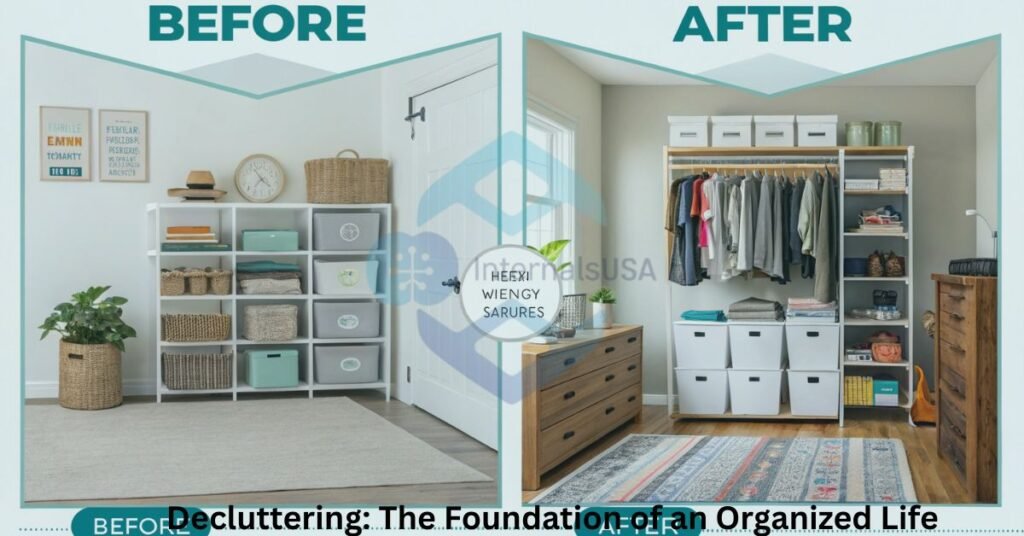
One of the first and most essential steps toward a clean lifestyle is decluttering. Getting rid of items that no longer serve you allows you to create space for things that truly matter.
How to Start
- Begin with a single area (e.g., your wardrobe or desk).
- Use the Four-Box Method: Keep, Donate, Trash, Relocate.
- Ask: “Have I used this in the past 6 months?” or “Does this bring me joy?”
Why It Matters
Decluttering isn’t just about physical space; it’s about clearing mental clutter, reducing decision fatigue, and enhancing emotional well-being.
Build Consistent Daily Routines
Routines are the structure behind an organized lifestyle. When you have set routines, your brain exerts less energy on everyday tasks, freeing up mental space.
Examples
- Morning Routine: Wake, meditate, hydrate, exercise, breakfast.
- Evening Routine: Disconnect from devices, plan tomorrow, and clean surfaces.
Benefits
- Increased productivity
- Reduced anxiety
- Better time management
Tidy As You Go
Don’t wait for things to pile up. Make it a habit to clean as you move through your day.
Small Habits That Matter
- Make your bed immediately after waking up.
- Wipe down kitchen counters after cooking.
- Put items back after use.
Embrace Minimalism in All Areas
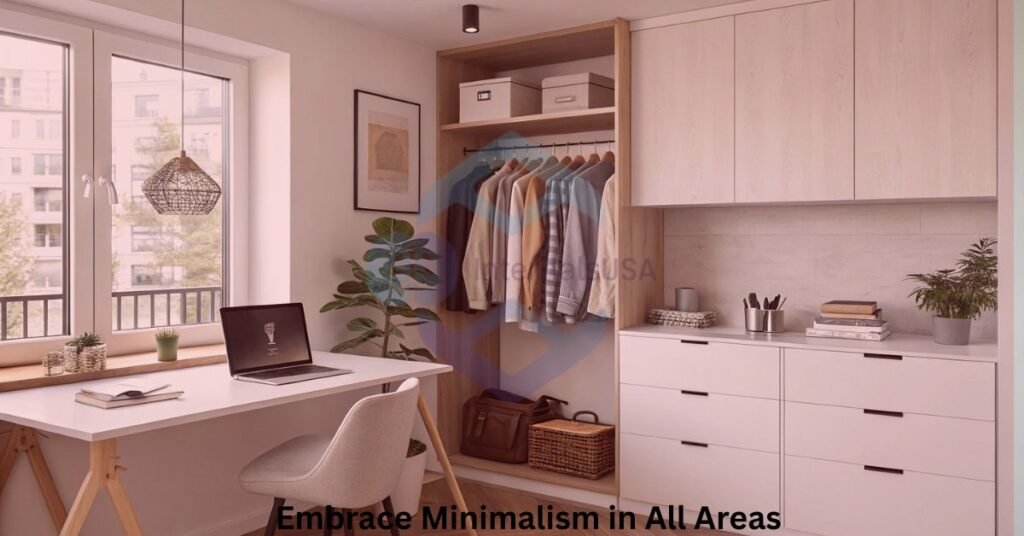
Minimalism doesn’t mean having nothing it means keeping only what’s useful or meaningful. A minimalist approach is one of the best tips for a clean and organized personal lifestyle because it simplifies decision-making and enhances focus.
Where to Apply It
- Home decor
- Clothing
- Gadgets
- Digital files
Minimalism = Freedom. It frees you from the burden of excess and aligns your lifestyle with your values.
Digital Declutter for Mental Clarity
Our phones, emails, and social media feeds can quickly become overwhelming. A digital detox isn’t just healthy, it’s necessary.
Actionable Steps
- Organize files into folders.
- Unsubscribe from unnecessary emails.
- Set a daily screen time limit.
- Clean your desktop weekly.
Create Designated Spaces
Everything in your home should have a home. Whether it’s keys, documents, or shoes, assign a place to every item.
Tips
- Use labeled containers.
- Designate zones (e.g., coffee station, mail station).
- Avoid mixing categories in the same drawer or closet.
This small change reduces time spent looking for items and increases overall efficiency.
Practice Mindful Consumption
Being organized also means being conscious of what you bring into your life—physically, emotionally, and mentally.
Mindful Consumption Includes
- Thinking before making a purchase.
- Limiting processed content (news, gossip, etc.).
- Choosing relationships that nourish you.
Use Organizational Tools and Apps
Leverage technology to stay organized. There are plenty of free and paid apps that can help streamline your day.
Recommended Tools
- Trello/Notion for task management
- Google Calendar for scheduling
- Evernote for note-taking
- Mint for budgeting
Automation helps eliminate friction in daily tasks and promotes consistency.
Plan Your Week Ahead
Weekly planning gives you a clear overview of what’s coming. It reduces stress and allows for better time allocation.
How to Plan Effectively
- Use Sunday evening for weekly planning.
- List the top 3 priorities for the week.
- Allocate buffer time for unexpected events.
Meal Planning for Efficiency and Health
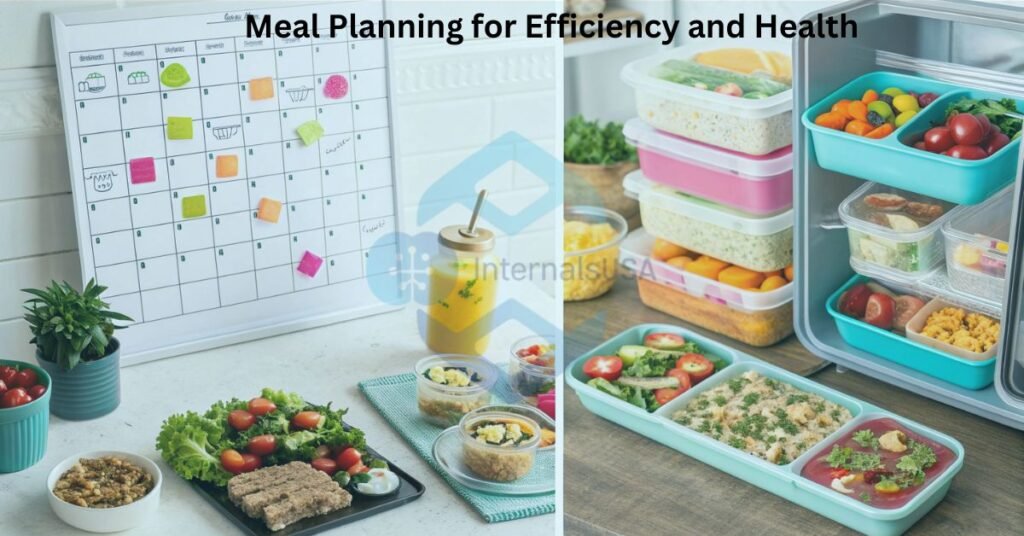
Food is central to well-being. Organized meal planning prevents last-minute decisions that often lead to unhealthy choices.
Meal Planning Tips
- Create a weekly menu.
- Batch cook for busy days.
- Keep pantry staples stocked.
Benefits
- Saves money
- Reduces food waste
- Promotes healthy eating habits
Keep a Cleaning Schedule
Instead of spending an entire day cleaning, break down tasks into daily, weekly, and monthly schedules.
Sample Weekly Plan
- Monday: Laundry
- Tuesday: Kitchen
- Wednesday: Bathroom
- Thursday: Bedrooms
- Friday: Floors
Set Realistic Goals and Priorities
An organized life is also about clarity in purpose. Set goals that are specific, measurable, and achievable.
SMART Goals
- Specific
- Measurable
- Achievable
- Relevant
- Time-bound
Write them down, track progress, and revise when necessary.
Create a Relaxation Corner
Your environment affects your mood. Designate a cozy corner where you can unwind with books, tea, music, or meditation.
Why It Works
- Promotes self-care
- Reduces stress
- Encourages mindful relaxation
Involve the Whole Household
If you live with family or roommates, involve them in creating a clean and organized lifestyle. Assign roles and build shared routines.
Ideas
- Family cleaning day
- Shared shopping lists
- Digital chore boards
Collaboration = Sustainability.
Reflect Regularly
Self-reflection helps you understand what’s working and what needs to change. Journaling or meditating for 5–10 minutes daily can help you stay aligned.
Questions to Ask
- What made me feel overwhelmed today?
- Did I follow my routine?
- What can I improve tomorrow?
Master the Art of Time Blocking
Time blocking is a productivity technique where you divide your day into chunks of time, each dedicated to a specific task or type of activity. Instead of relying on a generic to-do list, you assign tasks to time slots in your calendar.
Benefits
- Keeps you focused on one task at a time
- Minimizes distractions and procrastination
- Enhances work-life balance
Use tools like Google Calendar or a paper planner to map your day visually.
Reduce Decision Fatigue Through Simplification
Too many choices can lead to stress and burnout. Simplify your life by reducing decisions create routines for meals, outfits, and work tasks.
How to Do It
- Meal prep every Sunday to avoid daily food decisions
- Build a capsule wardrobe with staple items
- Use checklists for repeated tasks
Develop a Personal Filing System
Whether digital or physical, keeping your documents organized saves time and reduces stress. A clutter-free desk leads to a more productive mind.
Steps to Get Started
- Use labeled folders for physical documents
- Store important digital files in cloud storage
- Create categories like “Finance,” “Work,” “Health,” “Personal”
Organized documentation is essential for a smooth-running personal life.
Declutter Your Mind with Journaling
Mental clutter can be just as disruptive as physical clutter. Journaling is a therapeutic way to process emotions, track habits, and improve self-awareness.
Ideas for Journaling
- Daily gratitude lists
- Habit tracking logs
- Morning pages to clear your thoughts
Set Boundaries for Personal Space and Time
An organized lifestyle means respecting your space and your time. Set boundaries with others and with yourself to protect your energy and focus.
Examples
- Designate “quiet hours” in the evening
- Set limits on social media and notifications
- Say no to commitments that don’t align with your goals
Boundaries promote balance and prevent emotional clutter.
Frequently Asked Questions (FAQs)
What are the best tips for a clean and organized personal lifestyle for beginners?
Start small, declutter one room, create a morning routine, and set daily cleaning habits. Build on these gradually to avoid overwhelm.
How can I stay motivated to maintain an organized lifestyle?
Visualize your ideal environment, reward progress, and track your daily accomplishments. Surround yourself with positive, like-minded individuals.
Is it necessary to follow minimalism to be organized?
Not necessarily. You can be organized without being a minimalist, but minimalism often makes it easier to stay organized long-term.
How long does it take to build an organized lifestyle?
It varies per person, but with consistent daily effort, noticeable results can be seen in a few weeks.
How can I deal with emotional attachment to clutter?
Reflect on why you’re holding on to the item. If it no longer serves a positive purpose, consider taking a photo and letting it go.
Conclusion
Living an organized and clean lifestyle isn’t about perfection; it’s about progress, consistency, and intention. These best tips for a clean and organized personal lifestyle aren’t just to improve how your home looks but to transform how your life feels. By embracing mindful routines, minimizing unnecessary possessions, organizing both physical and digital spaces, and prioritizing clarity, you give yourself the tools to thrive. The benefits? A peaceful mind, a focused spirit, and a lifestyle that supports your long-term goals. Start with one tip today and watch how a small shift leads to big transformations in your personal life.
Also Read
Lifestyle Med: A Holistic Approach to Lasting Health and Wellness
Smart Lifestyles: The Ultimate Guide to Living Smarter, Healthier, and Greener
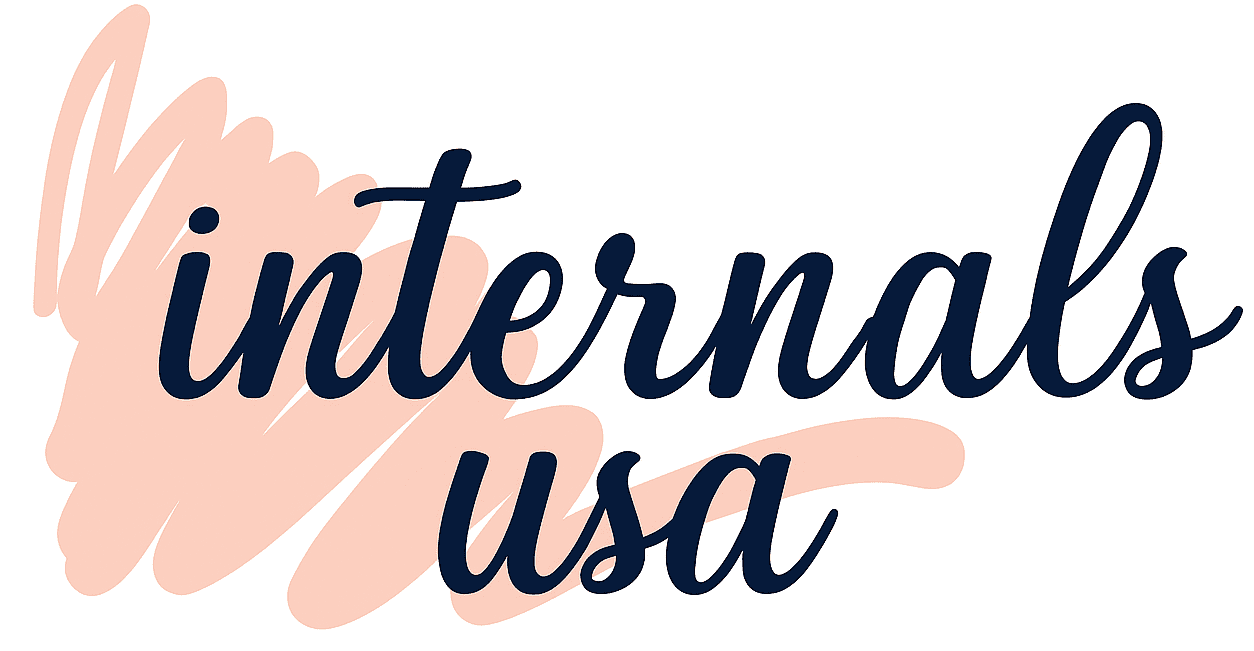

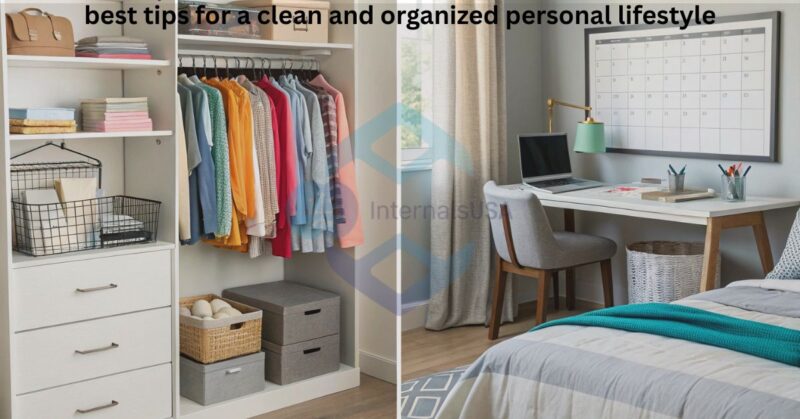





Leave feedback about this